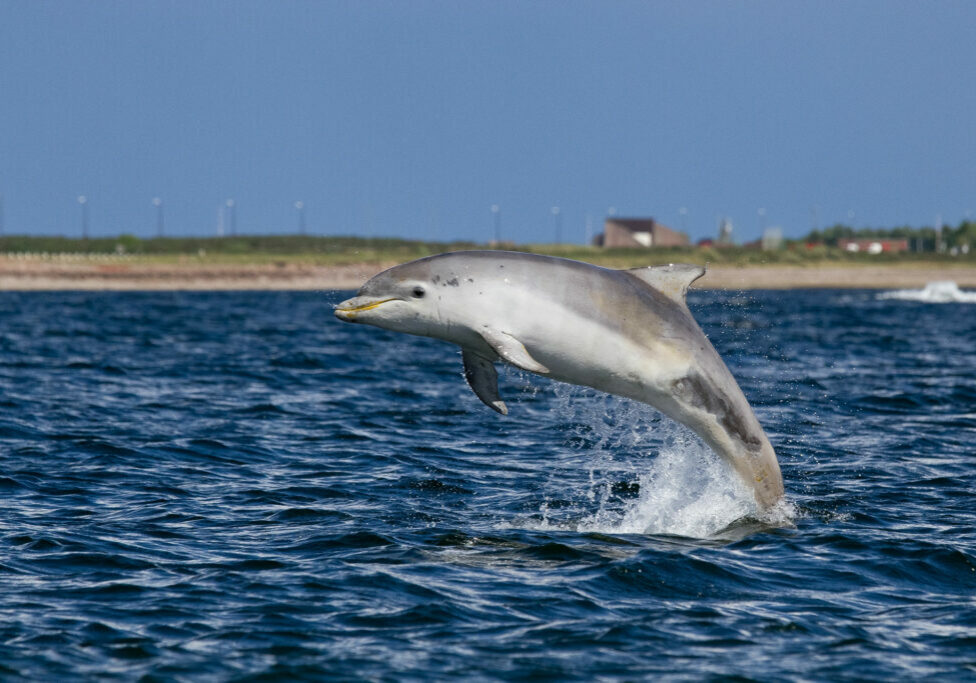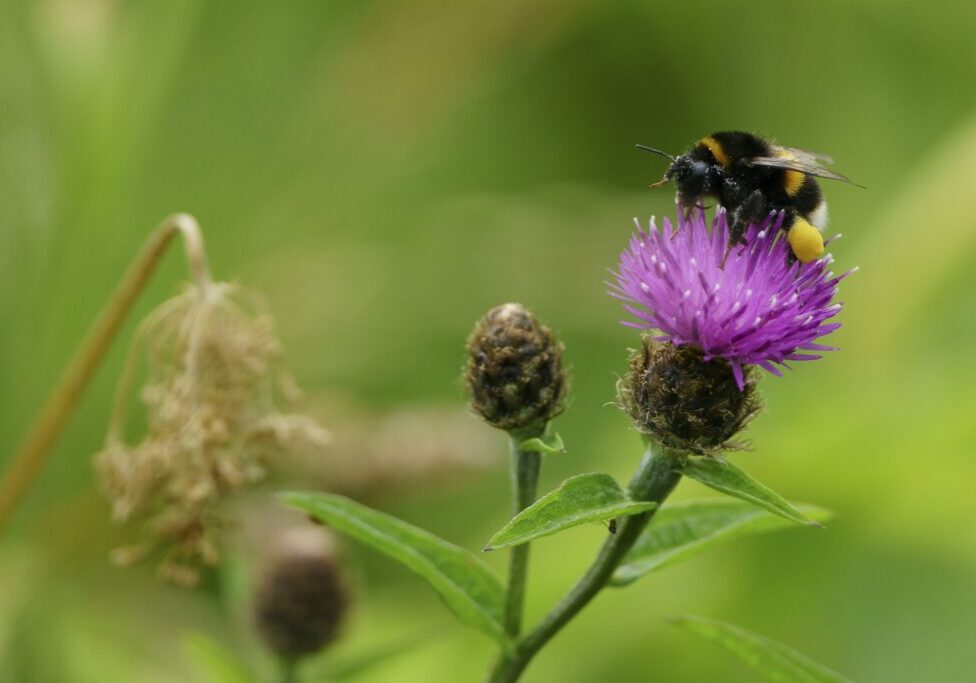1. Swimming
Michael Phelps is the most successful Olympic swimmer ever, with 23 gold medals around his (very strong) neck. He races through the water at around six miles an hour, earning himself the nickname ‘The Flying Fish’. But when chasing prey or evading a shark, an Atlantic bluefin tuna can swim at over 43 miles an hour – seven times faster than Phelps. This top speed is even more impressive when you realise how huge these fish are – the largest recorded tuna was heavier than a horse. You can give tuna a fighting chance of survival by choosing to buy sustainably fished seafood.
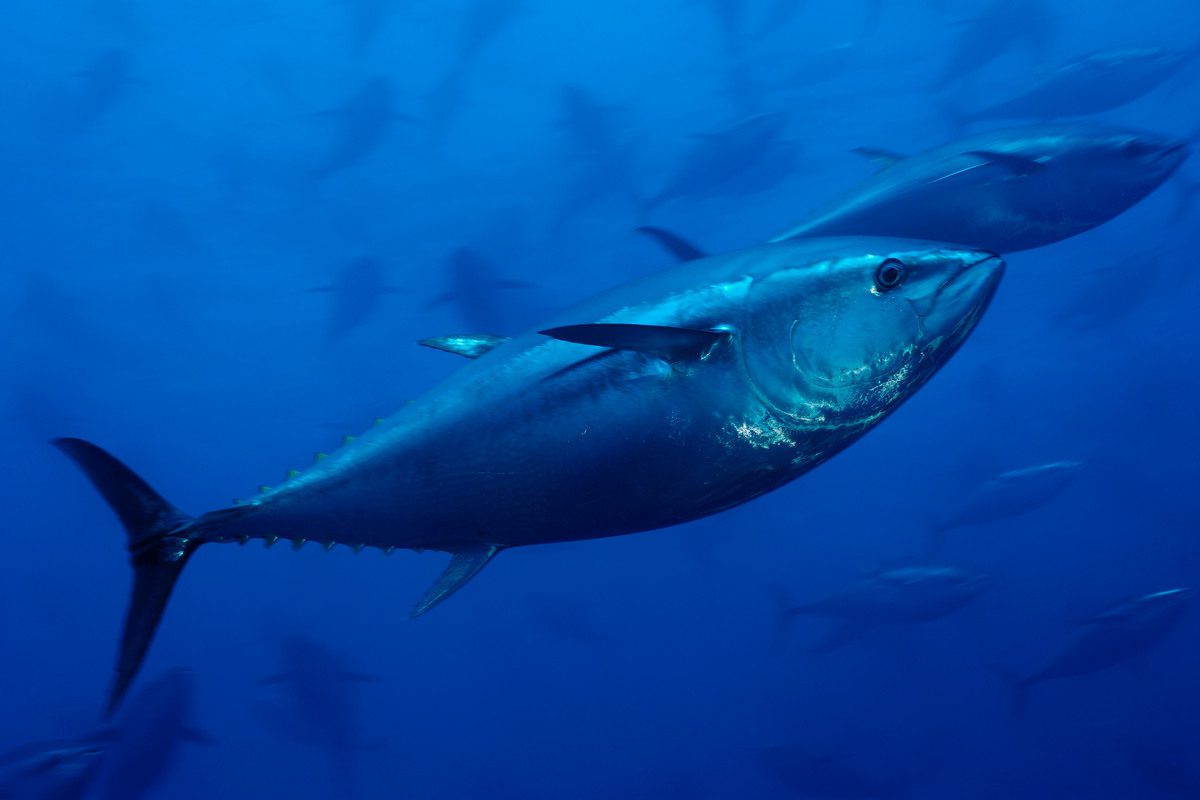
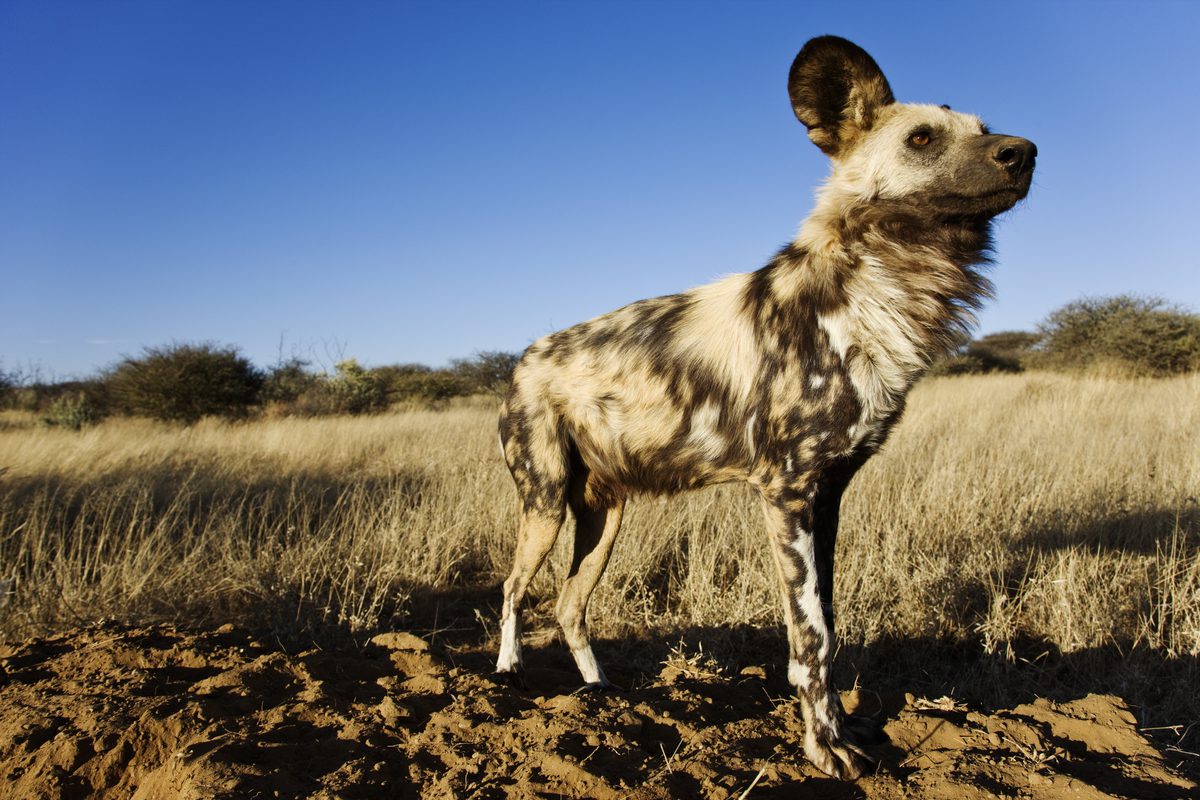
2. Marathon
The fastest person to run the marathon at the Olympics – Samuel Wanjiru – covered 26.2 miles in just two hours and six minutes in 2008. That’s a some seriously impressive time – unless you’re an African wild dog. These incredible canines have been recorded running at 37 miles an hour for up to an hour when they’re hunting. That means they could complete a marathon in about 40 minutes – all to get a meal.
3. Weightlifting
Olympic weightlifters can hold more than double their own bodyweight over their heads. But they’re no match for the world’s strongest animals – ants! In 2010, an Asian weaver ant was recorded carrying an object 100 times heavier than its own body, which would be equivalent to a person lifting a white rhino. Ants can lift heavy objects partly because they’re so small – they don’t have to ‘carry’ their own bulk, so their power-to-weight ratio is excellent. Also, their hard exoskeletons do the work of supporting their bodies, leaving their muscles free to heave leaves or food.
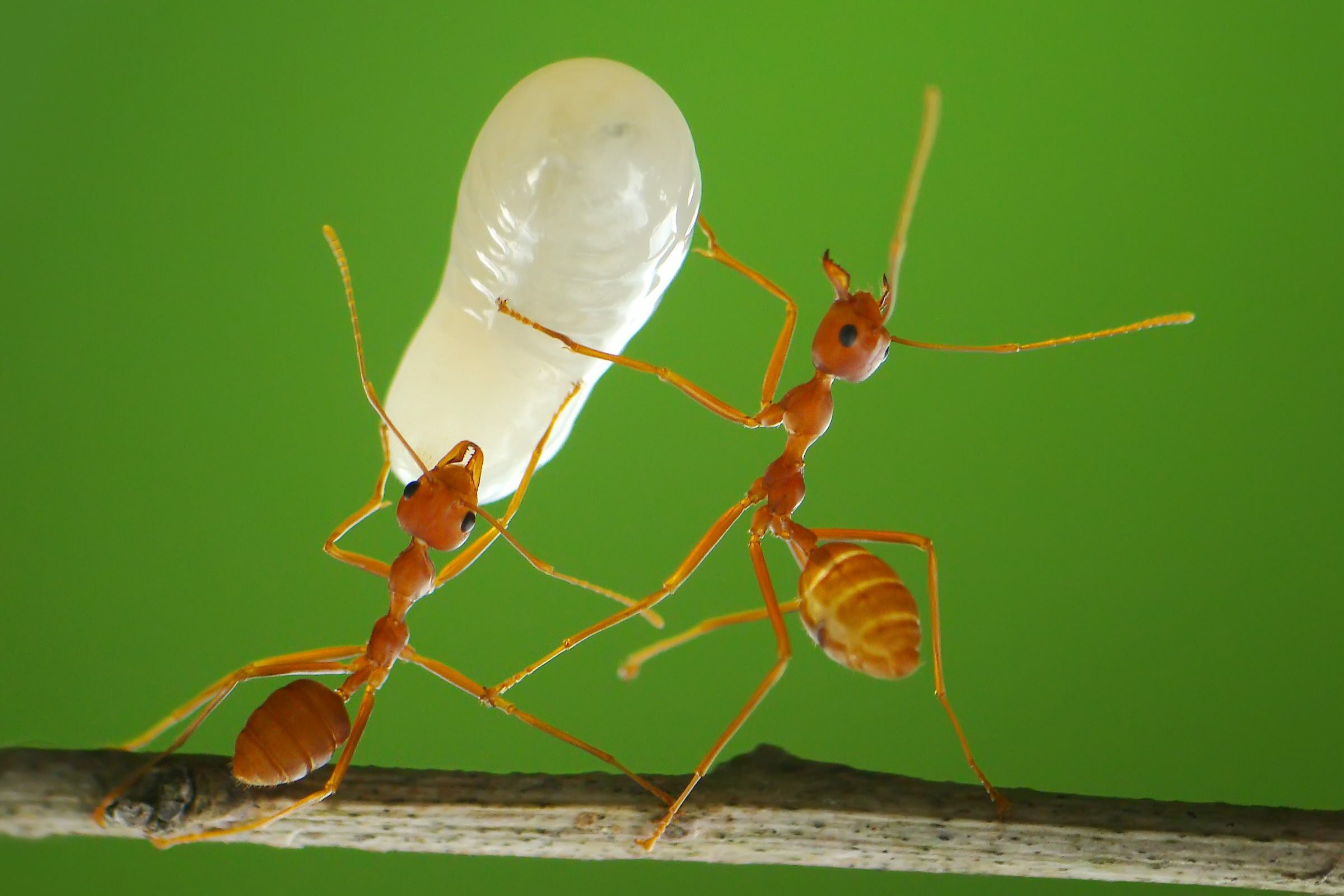
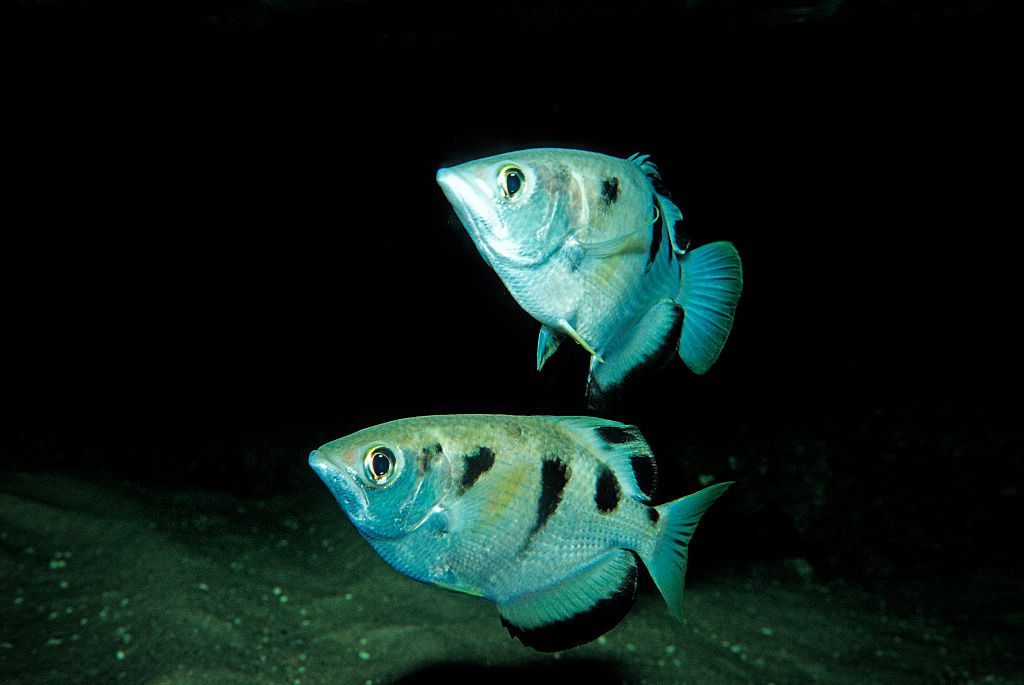
4. Archery
You have to be highly skilled to be an Olympic archer. The centre of the target is only the size of a DVD – and it’s 70 metres away. But that’s nothing to an archerfish. These small tropical fish spit jets of water at insects above the water, hoping to knock them in and eat them. Their aim is accurate up to half a metre. The fish even allow for gravity pulling down the jet of water, and adjust their firing angle to make up for the way lights bends at the water’s surface, which makes the target look like it’s somewhere else. Archerfish will also leap out of the water to eat insects that are close to the surface, but it’s more of a contender for an archery title than the high jump.
Don’t forget the tiny heroes!
Not all animals are world-class swimmers or sprinters. But the insects visiting our parks and gardens are champions, too. Find out how to make them welcome.
5. High jump
American Charles Austin holds the men’s Olympic record in the high jump, with a leap of 2.39 metres, which is nearly the height of a football goal. Austin’s jump is a hard target to beat – but fleas are the best jumpers of all. They can leap 50 times their own body length, at an average speed of 1.9 metres a second. These amazing feats are possible thanks to a substance called resilin. Two springy pads of resilin above a flea’s hind legs store energy, then release it in an explosive burst when they jump.
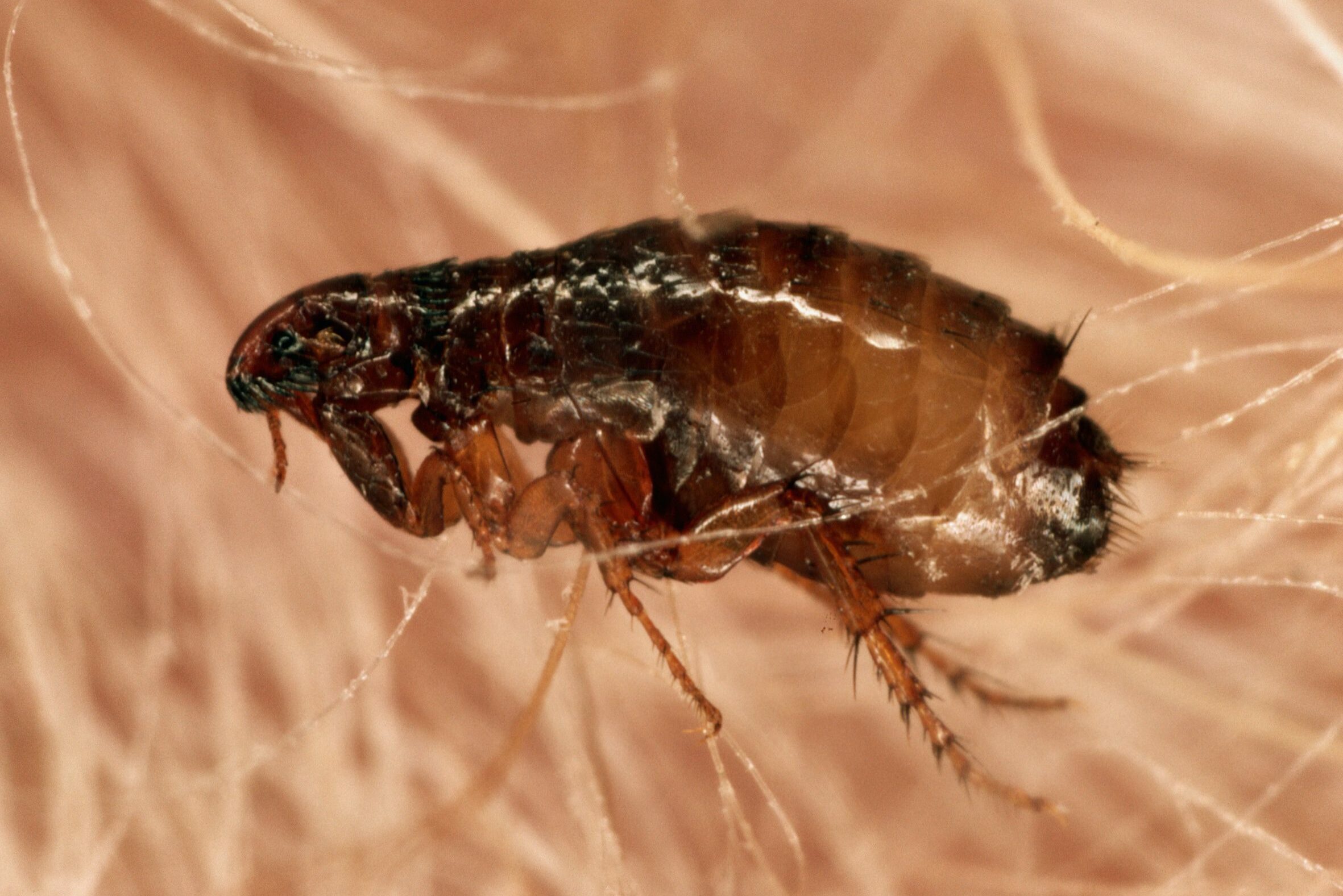
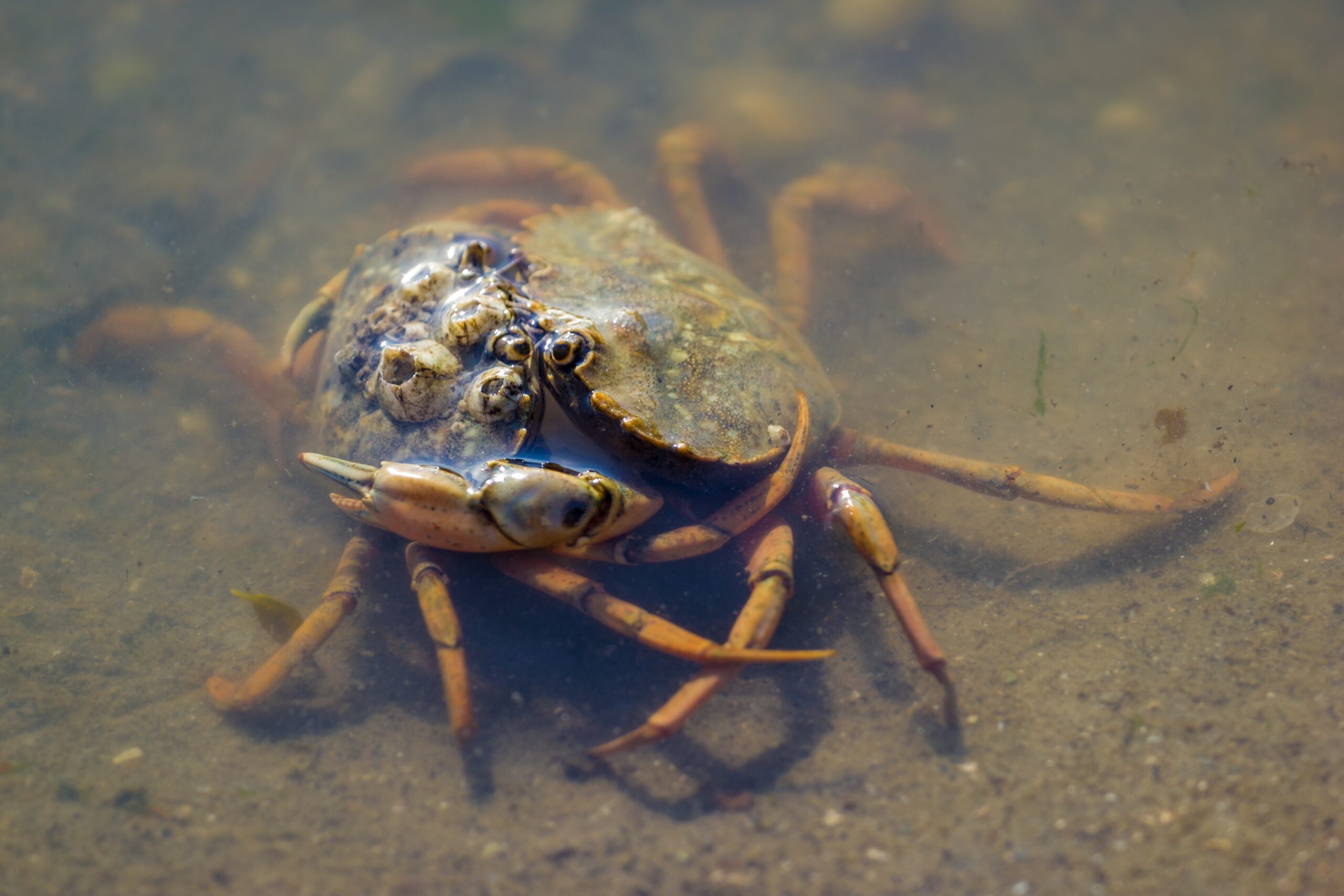
6. Wrestling
In Olympic wrestling there’s a move called the Boston crab in which one wrestler sits on the back of their prone opponent and lifts their legs into the air (the origin of the name isn’t clear). But on beaches around the world, crabs perform even better moves when they fight over territory. First, the crustaceans assess the size and strength of their opponent. Then they grapple, wrestle and pinch each other with their large front claws, while occasionally rearing up on their smaller hind legs to push each other over. The victor wins the patch of sand.
7. Gymnastics
Pandas might not seem obvious contenders for a gymnastics medal. Their lifestyle is famously sedentary, as they spend hours a day either eating bamboo or searching for the next meal. But to mark their territory, pandas will sometimes climb a tree backwards with their hindfeet until they’re in a full handstand, enabling them to leave their scent higher up. Males want to get their scent as high up the tree as possible to impress a potential mate (or warn other males) by tricking them into thinking they’re bigger than they are. You can help protect the bears and their habitat by adopting a panda.

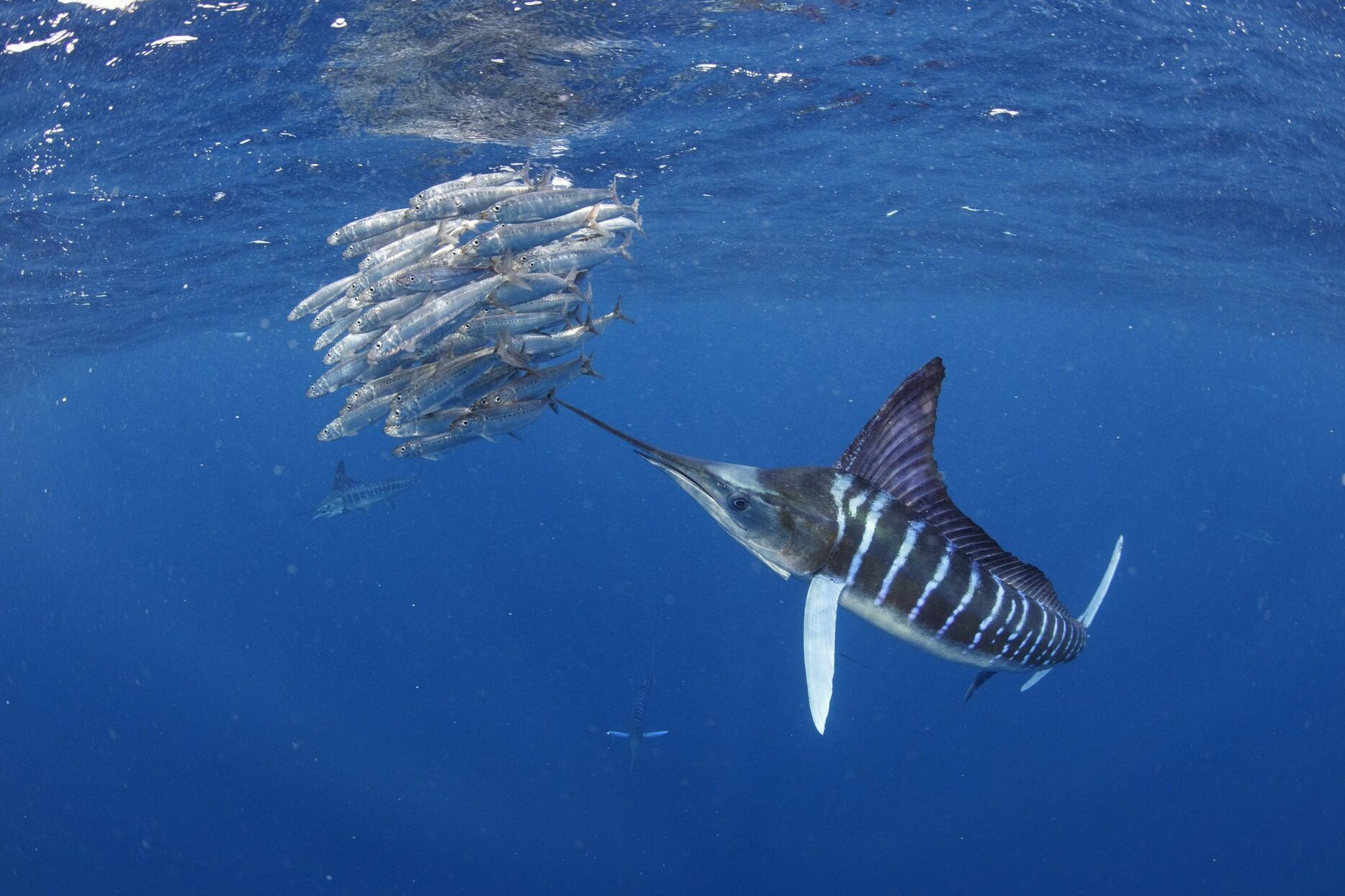
8. Fencing
There can surely be only one champion here, the appropriately named swordfish. While they could easily qualify as champion swimmers, their sword – a bony extension of their top jaw – is what sets them apart. And it is adapted as a weapon rather than a hydrodynamic feature to increase their speed. The sword (or bill) is used to slash at prey (such as squid or smaller fish) to slow them down so they can be caught more easily. Swordfish can grow to well over 4 metres long, so their bills are formidable weapons.
Discover more amazing animals
Visit our Fascinating Facts page to find out about incredible animals around the world
More to explore
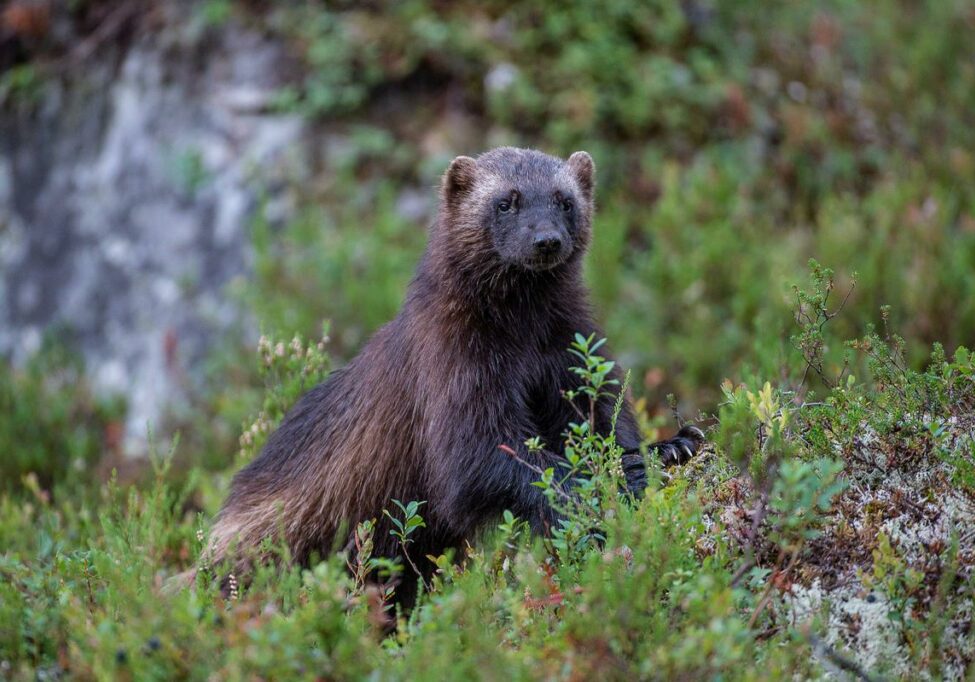
Tales of the unexpected species
From scorpions in Kent to ‘living fossil’ fish in Romania’s rivers, the UK and Europe are home to some surprising animals. Find out more about these unusual species…
